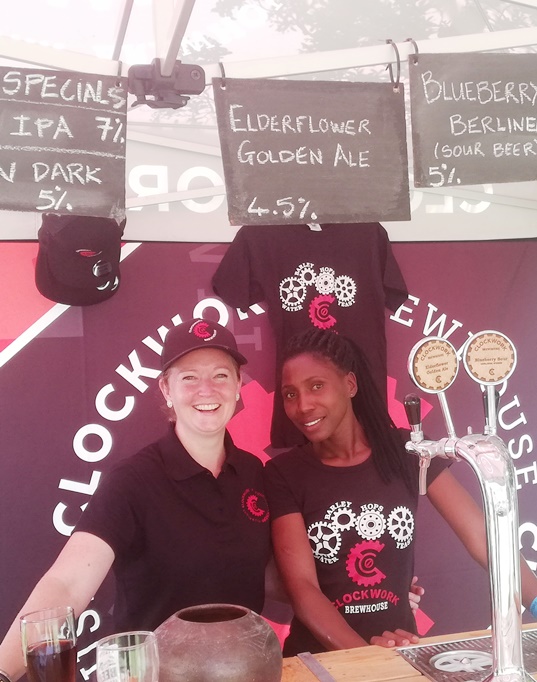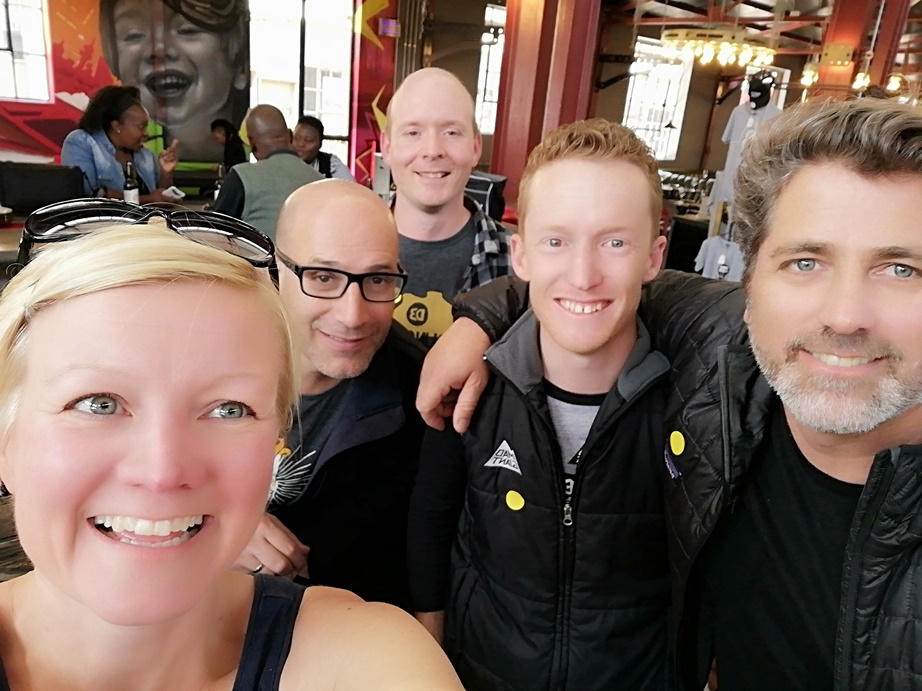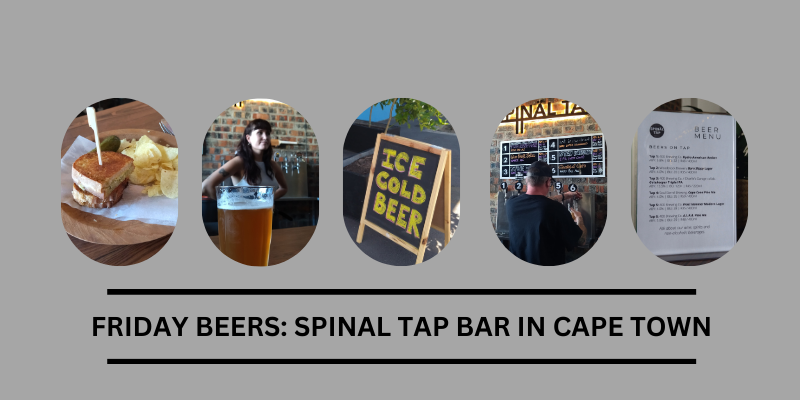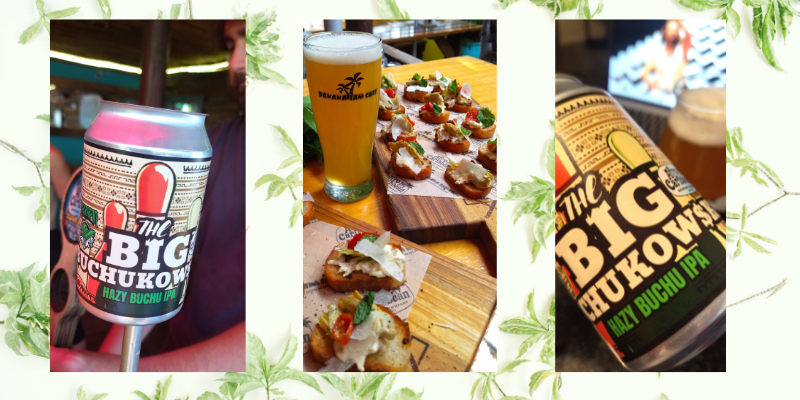This week I read an article on how COVID-19 is affecting the US craft beer scene. In a survey of 455 brewers carried out by the Brewers Association, 46% said that their businesses will not last for three months under the current conditions. Just imagine that – almost half of craft breweries in the USA say they might have to close if the current restrictions stay in place.
Now take into account the fact that their economy is stronger than ours, their craft beer sector is vastly more robust, well-established and far-reaching than ours and you can imagine what is likely to happen to craft beer in South Africa. Oh, and let’s not forget that in the USA (in most States at least) brewers can still sell their beer, if only via liquor stores and online sales. With the current “lockdown prohibition”, brewers in South Africa cannot legally sell any of their product through any channels. If it continues, it is quite simply, a death knell for the industry.
Layoffs and closures
A similar survey was undertaken last week by CBASA (Craft Brewers Association South Africa) and the results were pretty horrifying. Just under 100 brewers (representing around 50% of the country’s operating craft breweries and contract brands) responded to the survey, of which 97% said that their business had been affected negatively by COVID-19 and the associated restrictions.
Just over 50% said that they would have to lay off staff, while another 45% said that there was a possibility of layoffs. This would likely depend on whether lockdown is extended and whether the government would backtrack on their prohibition of alcohol sales.
Some brewers have already had to put up to 90% their staff on unpaid leave, while others are desperately trying to ensure that their co-workers and employees still earn a wage. “I am grateful our brew team is only Londy and I, so I can find the money to keep paying her,” says Megan Gemmell of Clockwork Brewhouse in Pietermaritzburg. She went on to detail the brewery’s losses to date, which include major income lost from events being cancelled.
Many smaller breweries rely heavily on events to keep the cash flow moving and some have lost sizable deposits paid for event stands, as well as the potential earnings, running into tens of thousands of rands. Several brewers I spoke to said that the lockdown has cost them upwards of R100,000 so far. One popular brewery has registered losses of R1.5m and is looking at possible liquidation.
Perhaps the most startling statistic of all in the CBASA survey came from the final question, which asked “Will COVID-19 threaten the sustainability of your business?” Just under 72% of respondent replied in the affirmative. If the ban on alcohol sales continues, there is a possibility that we will lose around 70% of our craft breweries.
“If we go back to normal next week, we will survive,” says Tony Hunter of Sedgefield Craft Brewery. “If we have an extension of a few weeks and then have customers without money or with no desire to meet in public places, quite simply my brewery will have to close for good. Being so small I cannot afford the monthly overheads, so I am not very positive about the future, I feel this may be it for the Sedgefield Craft Brewery, after six good years.”
Does prohibition work?
Tony isn’t confident that lockdown will end on April 17 and many South Africans agree with him. If that’s the case, the best we can hope for is that the government amends its ban on alcohol during this time, or else allots a fund to assist alcoholic beverage companies while they are unable to trade. “While we agree with the decision to ban alcohol for this initial 21 days due to safety issues, domestic violence etc. then the government should dedicate a fund for alcohol suppliers (brewers, distillers, bottle stores etc.) as all of these businesses have absolutely no revenue during this time as it is illegal to trade,” said Anna Anderson of Drifter Brewing in Cape Town. “Exemptions from SARS on excise tax could also assist,” she added. Many brewers are still having to pay full rent on their premises,are still expected to pay for the municipal services they’re not allowed to use and unlike the wine industry, breweries that export have not been given permission to continue sending their product overseas.

Finally visited Tony at Sedgefield Craft Brewery this year – let’s hope he’s still there next time we pass by
I do of course understand the reasons given for the ban; most of all the fact that alcohol makes people less inhibited and perhaps more likely to break social distancing rules.The other aspect is related to issues such as alcohol abuse, domestic abuse and drunk driving – obviously all serious concerns in South African society. Statistics have been thrown around citing the dip in road accidents and other injuries and deaths, with the credit given to absence of alcohol. I find this to be a little disingenuous. For a start, it’s difficult to have a car accident when you’re not allowed to leave your house. We’ve all seen the footage of how empty South African roads have been since March 27.
And what’s more, people do currently have alcohol. Those that had the means to do so stocked up in the three panicked days before lockdown commenced. Others are finding ways to top up their alcohol stash despite the booze ban. There have been reports of six-packs of Castle selling for up to R200; of Black Label quarts going for upwards of R50 a bottle. History shows us that prohibition simply does not work. Bootlegging – and all the crime associated with it – will always, always emerge, leaving people worse off than ever.
If lockdown is extended, and prohibition continues, we will start to see microbreweries closing – and quickly. Now some people might say ‘so what – it’s a niche product for a niche section of society. The industry doesn’t employ that many people so it’s no great loss.’ But you’re talking about losing almost an entire industry. A young industry that had blossomed over the past five years, that has challenged people’s perceptions of beer, has shown innovation and has elevated South Africa on the international beer stage. It’s a hugely creative sector that is driven largely by young entrepreneurs operating small, family-run businesses that – like most small businesses – compete above their weight category when it comes to supporting local communities, whether it is through employing locals as contractors or staff, stocking only locally produced products in their restaurants, driving tourism to the area or supporting nearby empowerment projects and charities. It’s an industry that is yet to fully mature, one that has been showing signs of really making an impact. And it’s in real trouble.
Support local
So what can you do about it? Well, while the alcohol ban remains in place, there isn’t a great deal that can be done other than a lot of online love (and don’t underestimate the impact posting a pic of you enjoying a brewery’s beer under lockdown could have on the brewer’s morale). So far, the industry has sadly failed to mobilise in the way that the restaurant industry has (encouraging people to purchase vouchers to use once they reopen and organising crowd-funding campaigns for staff) but there are a few breweries taking action. Check out this blog post for a list of ways to support your local craft brewery.
Once lockdown is lifted – assuming that the ban on alcohol sales doesn’t continue – brewers believe that online sales will be key. Many started to offer a delivery service before lockdown began and will continue to do so once they are again allowed to trade. “I think once the ban is lifted, there are going to be a lot of thirsty people,” says Megan,” but I don’t think bars and events will be allowed to open as soon as the ban is lifted, so direct sales will be key.”
One brewer who wanted to remain anonymous called on both the public and the hospitality industry to pull together to help craft beer survive the storm. “What we will need is to see support in the shops and bars once the ban is lifted,” he said. “For our regular customers to start reordering and for those that have been constantly late payers and difficult debtors to try and support us by sticking to the terms and conditions. This is of course dependent on the public supporting their businesses and ultimately, the craft beer industry.”
It’s going to be a tough time, financially for all of us. The majority of sectors have been negatively impacted by the pandemic and it’s going to be difficult to justify purchasing a luxury product like craft beer. But the only way to repair the economy is for us all to help each other out. So support small, local businesses wherever you can – they’re really going to need you. And the brewers are going to have to stick together if they hope to pull through. Mike Davies from Hopman Brewery in Cape Town sums it up perfectly: “To make it through to the other side mostly intact will mean that for a time, profit and success at the expense of others, as well as the competitive nature of business, takes a back seat,” he said. “We all can be part of the solution. It’ll be a sad day indeed if we lose the diversity of craft beer we have taken years to build in South Africa.”












eh, it’s rich when you primarily support only your buddy’s breweries. AC and Drifter in this article, but in the other articles there’s always the select few that get a mention. I liked the blog at first, but in recent years we mostly just see the ‘cool crowd’ finding some lime light on here. You will protest, I’m sure, but I also don’t want to alienate myself, therefore, I’ll refrain from naming myself.
Hi “Allan”. When I write an article like this, I email every single one of the 200+ brewers in the country asking for comment and in this case to ask if they had any initiatives running to help them through. I have mentioned everybody who replied. I will, as always, add further brewers as and when they contact me with information.
Sorry you don’t enjoy the blog any more. It’s a labour of love that I don’t get to work on as much as I’d like due to the fact that it makes precisely R0 per month 😔. i’m always open to ideas of the sort of thing you’d like to read about or breweries you’d like to know more about.
Hope you’ll support the industry through this difficult time.
People are reverting to home concoctions. I see them buying pineapples and brown sugar and smoking cannabis. If they start to make moonshine we might see deaths due to alcohol. People find illegal cigarettes to buy, government losing out on excise duties on cigarettes and alcohol.
Great article Lucy, sums everything up perfectly. We need to fight hard to get this alcohol ban lifted and we need to ensure that lock-down does not destroy more lives that those it was intended to protect.
Please please just let us buy beer!!!
Thanks for the insight.
I was fortunate enough to get some JB beer before the lockdow. But now i fear i have only planned for the 21days, so common sense, even heavily regulated must please previal.
Thanks Lucy
Hi Lucy
Thanks for the update and views of many craft brewery folk. It’s a sad time all around and here in the UK we are just about holding on with home deliveries and up front sales and vouchers like Afro Caribbean.
Sending love and support from the UK brewers and hoping you all stay safe, strong and solvent.
#wewillmeetagainforbeer
Cyril has a choice to make 3 options
1. Let the craft beer industry go under
2. Allow the sale of booze and have the hospitals in the townships become overwhelmed with knife and gunshot victims as well as Covid 19
See Reggie Yates docco on Netflix knife crime ER where he spends a weekend in the Khayelitsha hospital dealing with machete wounds gunshot wounds in a typical weekend everyone who comes in drunk
It happens every weekend because of drinking booze
3. Cyril can call it as it is and admit the townships are the problem and only ban the sale of booze in townships